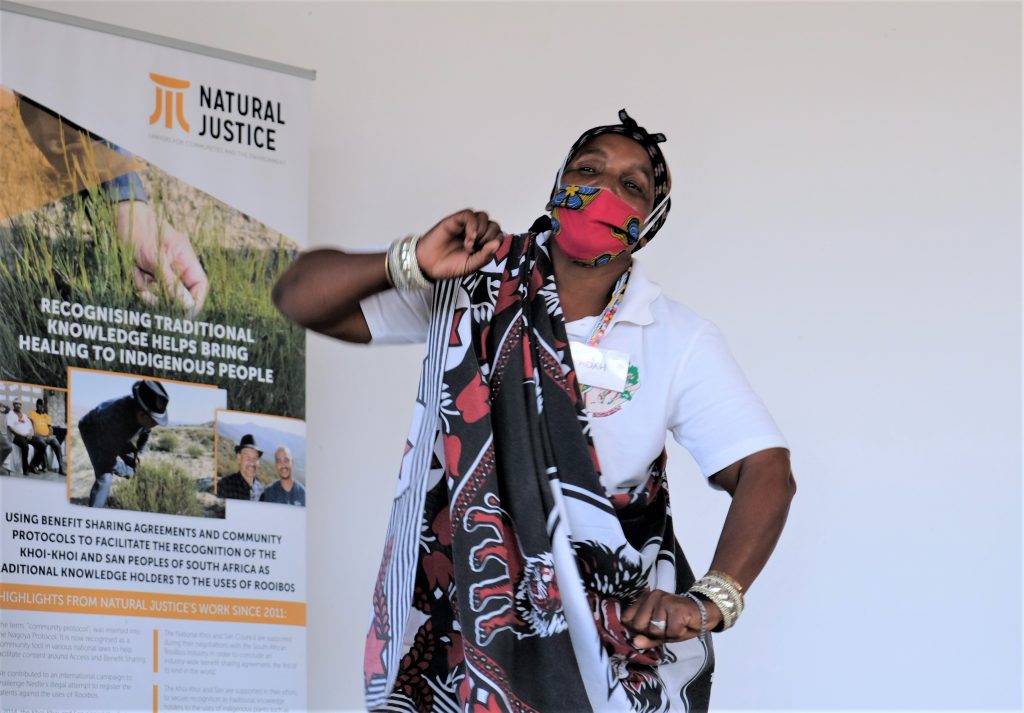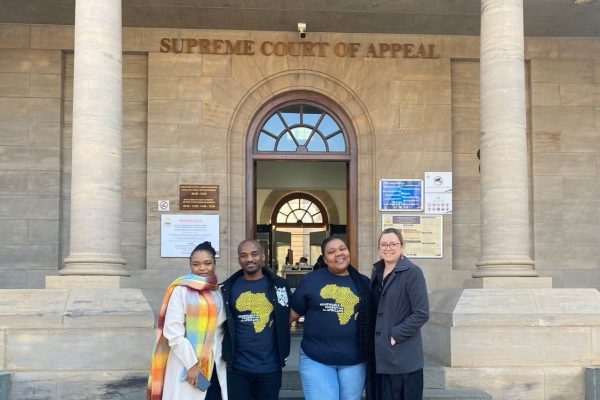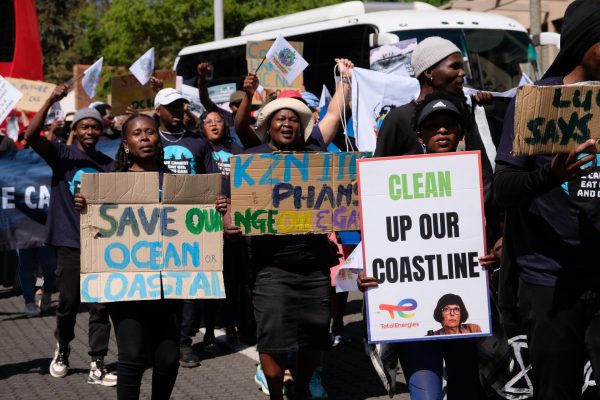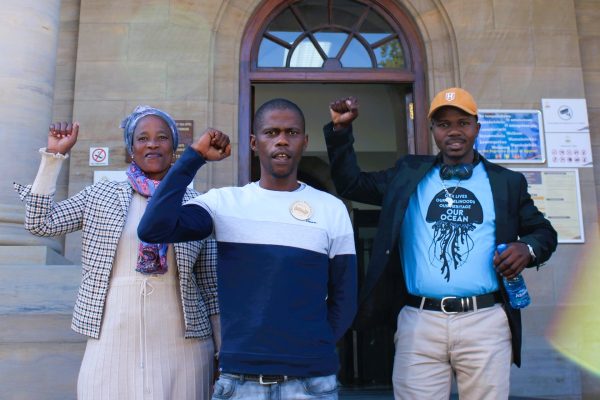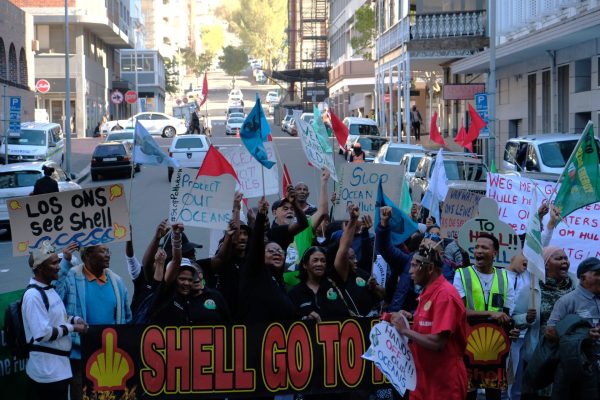Last year, despite the COVID-19 pandemic, work began on a project to identify and document Southern African traditional knowledge holders and communities who are resource stewards of key plant species found in various regions of the country (and Southern Africa). My colleagues, Sobantu Mzwakali and Stanley Peterson, travelled to areas like the Eastern Cape, West Coast and Limpopo to meet with people who are involved in the use, harvesting and processing of these plant species. They began to impart understandings of the legal frameworks and opportunities for Access and Benefit-sharing in South Africa.
Last week, from the 13-15 April 2021, this work came to the fore as community representatives gathered at the beautiful setting of EarthRise Mountain Lodge and Conference Centre to build relationships with each other, receive further legal empowerment and learn about the individual struggles happening in communities. Due to COVID-19 concerns, only a limited number of people were able to attend but protecting participants was a priority for all.
Six shuttles set out from various parts of South Africa, braving the potholes and dirt roads of the Free State, to deliver their occupants to the second home of Natural Justice. As many may know, Natural Justice has been tasked with stewarding EarthRise for the benefit of the adjacent communities living on the farm and to create a space for learning, exchange and activism. We thank the community representatives who travelled for many hours to get there. It was the first event for Natural Justice at the venue and so a very special opportunity for us.
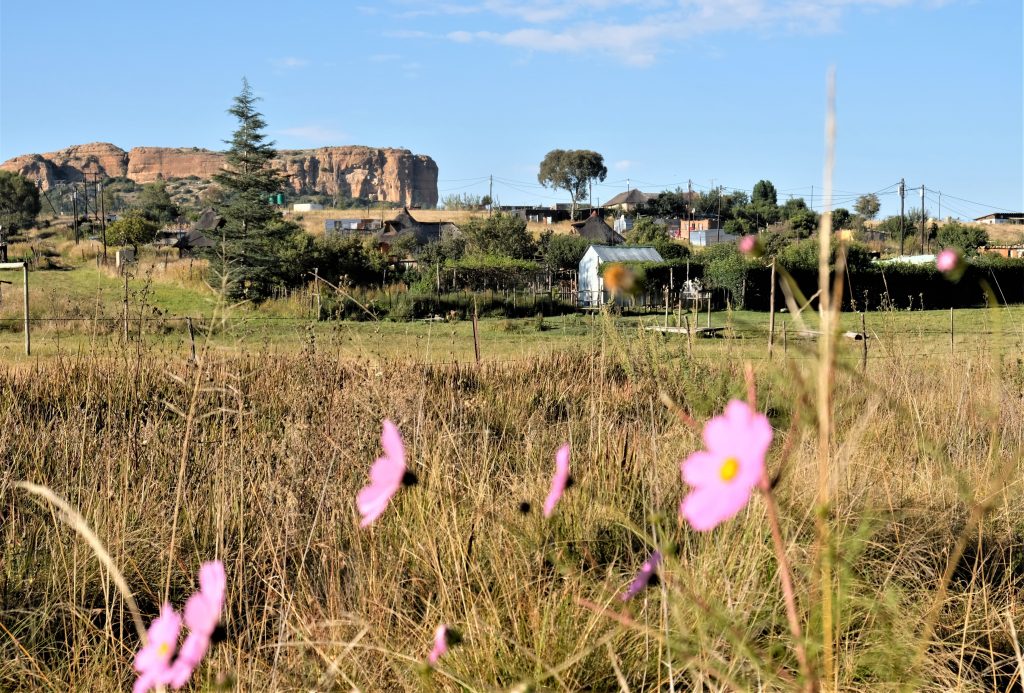
Access and Benefit-sharing to benefit communities
Day one and part of day two of the conference focused on legal empowerment. The Natural Justice team took participants through Biocultural Community Protocols (BCPs) as a legal empowerment tool, various international and national frameworks on Traditional Knowledge, as well as the workings of Access and Benefit-sharing (ABS). Natalie Feltman from the Department of Environment, Forestry and Fisheries provided a presentation on the legal frameworks of ABS in South Africa, reminding us that the country is a leader in ABS.
ABS can be hugely beneficial for communities, if it is well implemented and communities are provided with the opportunity for asserting their prior and informed consent. However, being aware of limitations is as important, as well as the responsibility of communities to provide a united and strong body from which to start negotiations. The ways of creating unity were part of the discussions lead by Motlatjo Maputla from the BioInnovation programme at GIZ. He facilitated a very amusing roleplay of how communities negotiate within the value chain.
The community conference was attended by members of the South African San Council and National Khoi and San Council. They provided much wisdom on their own experiences of ABS and we are grateful they agreed to attend. They were part of the nine-year negotiations that culminated in the Rooibos ABS agreement, the first industry-wide agreement in the world. We can learn much from their experiences and, again, it was a reminder of the importance of the negotiations in bringing the KhoiKhoi and San communities together respectively, empowering them with a means to negotiate through the Rooibos BCP and journeying with them on the road to recognition as traditional knowledge holders.
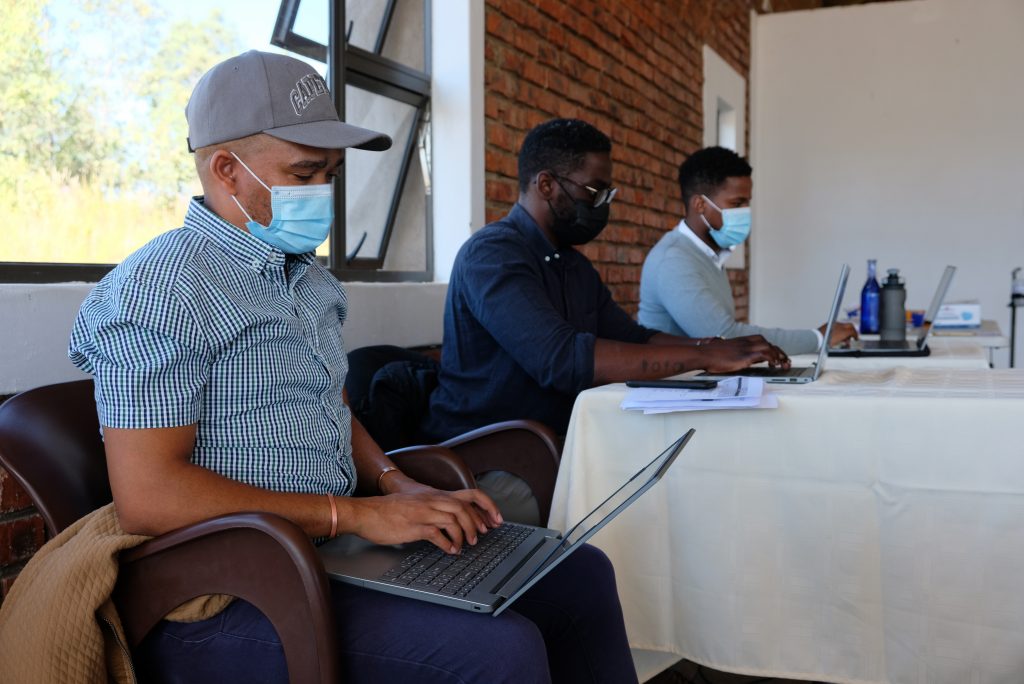
Threats to plant species and traditional knowledge
A very important part of this conference was to expose communities to their responsibilities as resource stewards and traditional knowledge holders. There is a direct but often tenuous relationship between the two – for example, the KhoiKhoi people who have been recognised as traditional knowledge holders to the uses of rooibos, are landless as a people. They are excluded nationally and internationally from efforts leading towards the conservation of the resource. Instead, the rooibos farmers fill that role, but are up against issues of climate change, land access and market fluctuations. Working together as both traditional knowledge holders and farmers will be key to ensuring that the rooibos species survives, as does the transfer of knowledge to future generations. This comes with its own challenges as the youth move to cities for better opportunities.
Much debate happened with regards to conservation standards and the role of communities in stewarding resources in a sustainable way. Access to resources remains an issue for some communities, as well as over-harvesting of species once they become known for having beneficial health impacts – often by external people. It is essential to empower communities to not only physical protect resources, but to also protect the knowledge of those resources – and ensure that sustainable resource practices which are embedded in their knowledge is passed on.
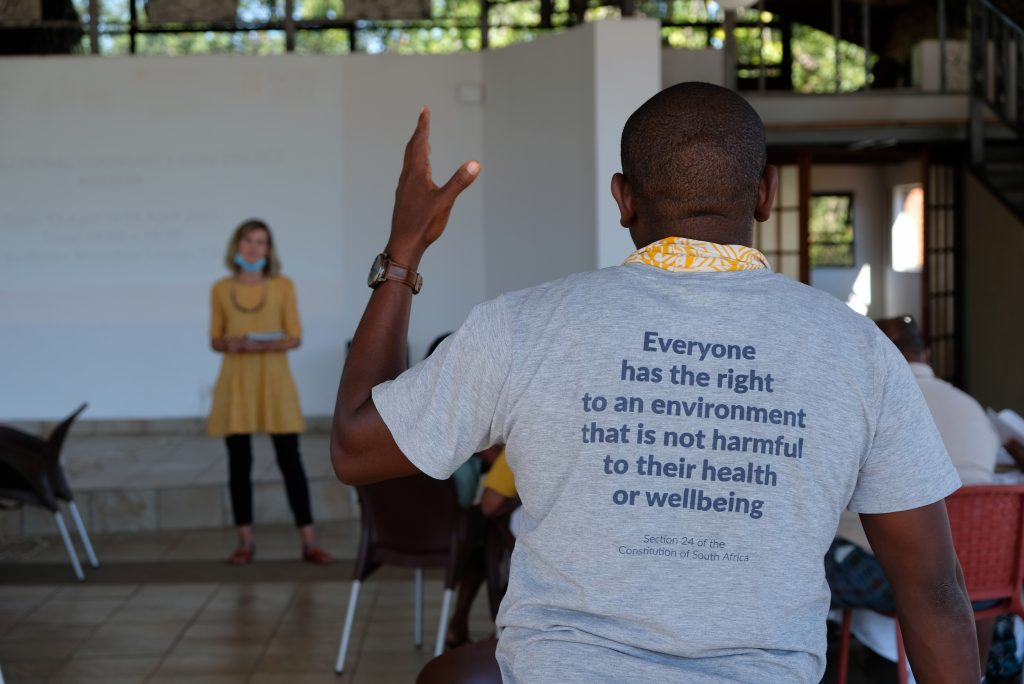
Biocultural Community Protocols provide hope
Many participants were glad to learn more about Biocultural Community Protocols. Natural Justice has a lot of experience in these processes and have witnessed how they provide support to communities and strengthen their responses to struggles. Many participants acknowledged that this could be a good way to mobilise their communities and recognised that these tools create an autonomy for communities, providing them with the means to assert their traditional knowledge and stewardship of certain resources. In fact, one of the key outputs of the conference will be draft BCPs that can start to make sense of the communities and their identities. Day three was spent working on some of this content.
My favourite part of the conference happened after lunch on day three when we conducted a quick “speed dating” event whereby different people from different communities were able to tell their story to others. Watching people laugh amongst themselves, but also quietly listen to people’s history and knowledge, felt like a moment where true connection could happen. After this, a group hiked to the nearby sacred caves – taking in the beauty of the Earthrise valley. Many took the opportunity to get to know one another further.
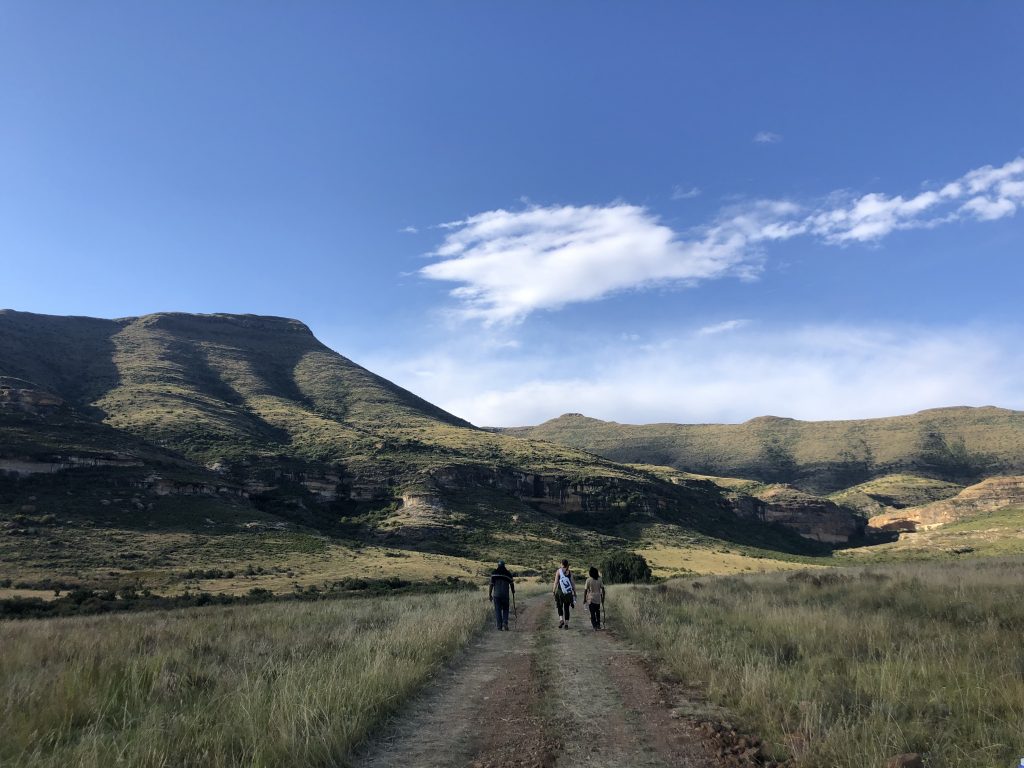
For those who attended, thank you. There was a willingness to listen and engage – and many participants have felt empowered and able to see a different journey forward as a community. We hope that they will take the knowledge and lessons back to their communities. Our experience with BCPs and ABS shows that none of these processes are quick and easy, but we are pleased to see that various stakeholders, including government and GIZ, are focusing efforts to support communities to enter value chains as empowered actors.
Thank you to our partners from the Department of Environment, Forestry and Fisheries, as well as the ABioSA and BioInnovation programme at GIZ. A special thank you to the wonderful Naledi and Franschhoek community members at the lodge who assisted us in various ways – including cooking delicious meals for participants, management by Anton Chaka, housekeeping, as well as the guided walk with Japie Lephatsi. Special thank you to Jacqui Damons for her overall assistance and coordination.
EarthRise Mountain Lodge and Conferencing Centre is available for trainings, retreats, events and even just for individuals or families. http://www.earthrisemountainlodge.co.za/

